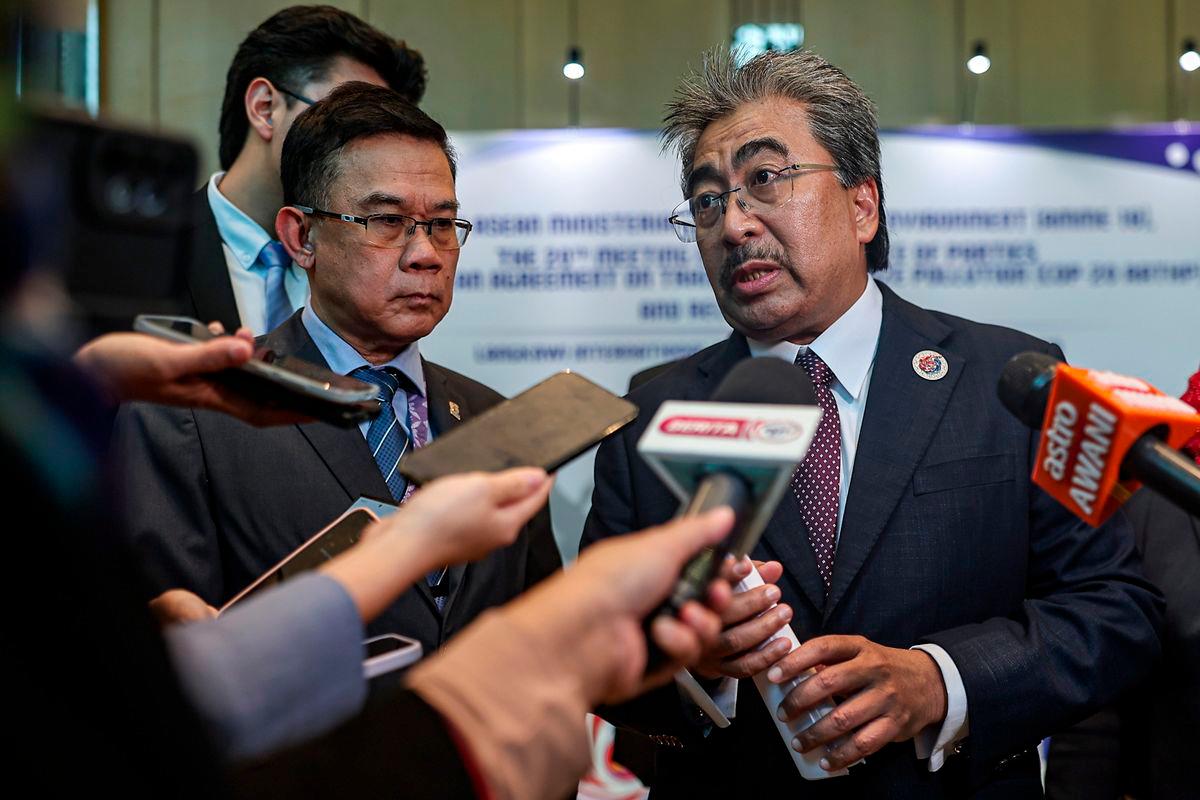LANGKAWI: ASEAN must increase investments in early detection and warning technologies to better manage transboundary haze and other environmental threats according to Acting Natural Resources and Environmental Sustainability Minister Datuk Seri Johari Abdul Ghani.
Johari stated there is no room for complacency and emphasized that stronger funding and collaboration are essential to enhance the region’s technological capabilities in identifying and responding to environmental risks before they escalate.
“There’s no complacency except that I think there’s a lot of investment needed in technology especially early detection and early warning systems so we can address it quickly,“ he told reporters after the 20th Meeting of the Conference of the Parties to the ASEAN Agreement on Transboundary Haze Pollution.
Johari explained that funding remains a challenge as some countries can allocate resources while others prioritise different spending needs despite the importance of these systems.
During the meeting Malaysia was appointed to lead two sub-committees for the next two years focusing on nature conservation and biodiversity and chemicals and waste management.
The Philippines will lead the coastal and marine environment sub-committee while Laos will head water resources and Cambodia will take environmental and sustainable cities with Singapore and Thailand jointly leading the climate change committee.
In his opening remarks Johari urged the region to strengthen cooperation and sustain political will to effectively tackle this recurring challenge which continues to affect ASEAN despite progress made since the agreement was adopted in 2002.
He stressed that the urgency of their work could not be overstated warning that complacency is not an option even in years with less severe haze as past episodes stand as stark reminders of the scale of the challenge.
“Malaysia experienced transboundary haze incidents in July 2025 which serves as a reminder that despite the progress achieved our task is far from complete,“ he said.
Johari added that achieving a haze-free ASEAN by 2030 aligns with the region’s environmental commitments and global climate goals under the Paris Agreement particularly in emission reduction biodiversity conservation and sustainable development.
He also called upon ASEAN member states to strengthen collaboration with dialogue partners development agencies and international institutions in areas such as prevention early warning mitigation and capacity-building.
The next COP-21 meeting will be held in Vietnam in 2026 while Myanmar will host AMME-19 and COP-22 in 2027. – Bernama









